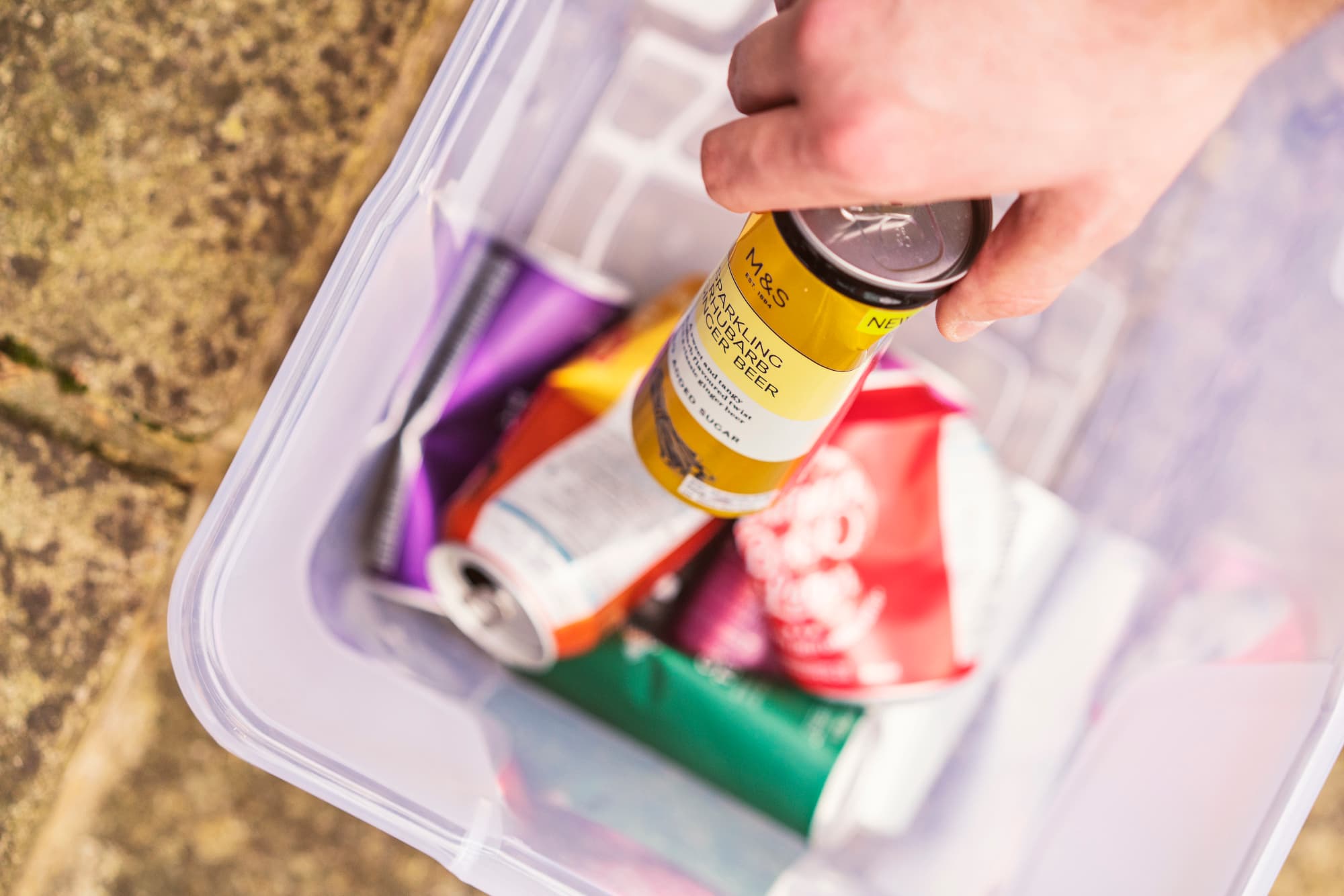Many of the food and drink products we buy are packaged in cans made from either aluminium or steel and both of these materials can be recycled after we have finished with them to make either new cans or other products. All councils in Wales collect cans and tins, either in a container with plastic bottles, pots, tubs and trays, or mixed with other dry recycling, such as cardboard, paper, plastics, and glass bottles and jars. Most of us recycle our cans and tins using this service.
Why is it important to recycle cans?
Both steel and aluminium can be recycled time and time again without losing any quality and more and more people are recycling their cans which helps to conserve non-renewable fossil fuels, reduce the consumption of energy and the emission of gasses like carbon dioxide into the atmosphere.
When we recycle these items and they become new cans and tins, we use less energy compared to using new, raw or virgin materials, whilst reducing our carbon emissions which helps prevent climate change.
Aluminium
Aluminium is a resource that forms about 8% of the earth's crust. It is mined and extracted from bauxite, which contains the compound alumina, in an energy-intensive electrolytic process. Four tonnes of bauxite contains two tonnes of alumina, which yields one tonne of valuable aluminium. The metal is used in buildings, transport and other industrial applications, as well as packaging.
Aluminium is the most cost-effective material to recycle, using around only 5% of the energy and emissions needed to make it from the raw material bauxite.
In addition, all the scraps left over from the aluminium production process can be melted down and used again and again. For this reason, recycling is part of the normal lifecycle for large industrial products - around 75% of all the aluminium ever made is still in circulation.
Steel
Steel is made from one of the earth's most common natural resources, iron ore, as well as limestone and coal. Mining for these raw materials and the production process involved in making steel have an environmental impact. Not only does the process require large amounts of energy but raw materials are wasted when mining, and the production process also produces waste and emissions.
Steel can be recycled time and time again without loss of quality, so by simply recycling our steel we can conserve non-renewable fossil fuels, reduce the consumption of energy and reduce the amount of raw materials being wasted.
How are cans recycled?
Aluminium cans
Aluminium cans are shredded, removing any coloured coating. They are then melted in a huge furnace and the molten metal is poured into ingot casts to set. Each ingot can be made into around 1.5 million cans.
Aluminium foil is a different alloy and is usually recycled separately with other aluminium scraps to make cast items such as engine components.
Steel cans
Steel cans are put into the furnace where molten iron is added. Oxygen is then blasted into the furnace which heats up to around 1700°C. The liquid metal is poured into a mould to form big slabs which are then rolled into coils. These coils are used to make all sorts of steel products.
Steel cans are processed with other steel scrap but not with aluminium cans.
How are recycled cans used?
Many of the aluminium drinks cans collected in Wales are recycled over and over again and remade into new drinks cans, filled and put back on the shelf in just six weeks.
Steel can be infinitely recycled and because it is such a widely used material, the ranges of possible uses for it are endless. It can be found in an incredibly diverse variety of products from train tracks and cars to bicycle frames and paperclips, and of course new food and drinks cans.
How to recycle food tins and drinks cans
Many other aluminium and steel items can be recycled along with food tins and drink cans, including aerosols, foil take-away trays and tomato puree tubes. If we recycle more cans we can reduce the amount of raw materials needed to produce new products.
